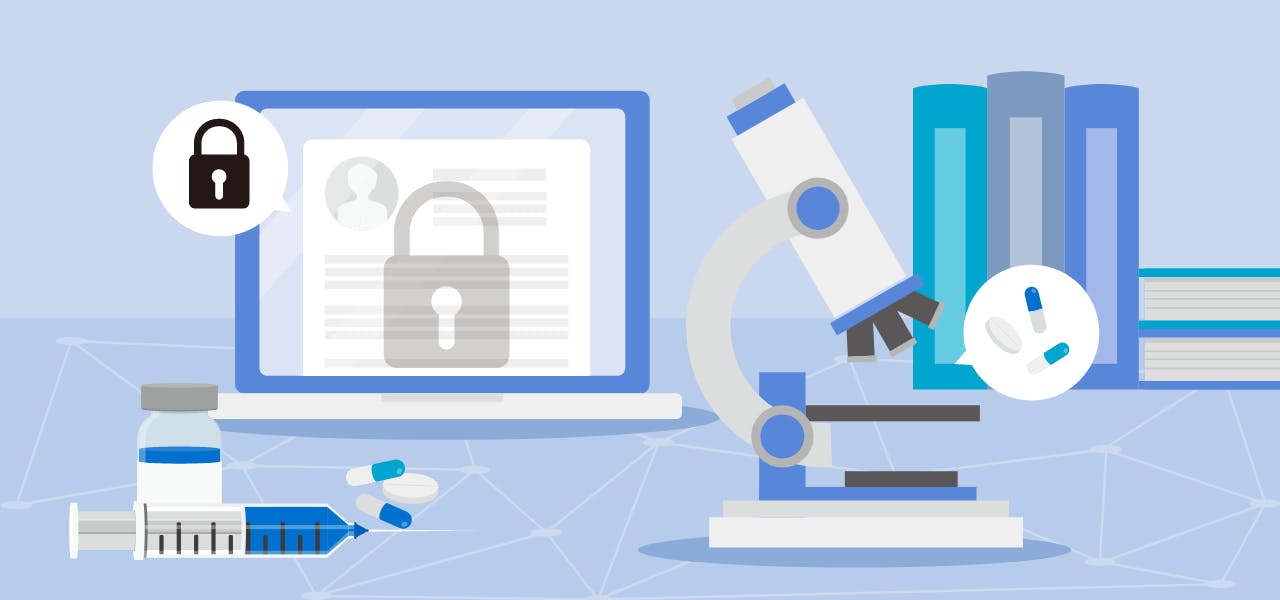Patient privacy and clinical trials are two hotly discussed topics in the field of academics and healthcare. With two hot-button topics - healthcare and education - it’s no wonder that the landscape is followed closely. Patient privacy is crucial after centuries of unethical treatment of humans in the quest to improve future generations’ health, which is exactly the intent of clinical trials.
As we reach for a better tomorrow, though, we must ensure we treat today’s human subject with dignity, equality, and ethics. This is where data-sharing practices are important. In clinical trials, there are multiple levels of people who need access to the information made available in the experiment. From the participants to the researchers, the physicians, and the funders, everyone has their own reason for needing the data. But this sharing, though necessary, must follow ethical and legal guidelines to prevent history from ever repeating itself.
The History Behind the Protection of Humans in Clinical Trials
A global goal has always been to improve humanity’s access to healthcare. Although this is a worthy, righteous reason to move forward in research, the methods in which it was attempted have not always been quite as dignified. Many disastrous consequences have come from using humans for research, causing the need for informed consent to be a universal requirement in all medical research, particularly clinical trials.
One of the first written frameworks for ethics in healthcare was the Nuremberg Code of 1947. This started the idea of informed consent as we know it today and was developed after World War II, when the understanding of how Nazi doctors used humans to research on in immoral, unethical ways was made apparent. With the Nuremberg Code, researchers and physicians were required to ensure all human participants voluntarily agreed to the terms of the study. Voluntary meant both mental and physical consent, so if a person was deemed mentally incapacitated or was physically coerced, it did not count.
From there, nearly two decades later, the Declaration of Helsinki brought human rights forward even further. Twelve principles were written to guide physicians and researchers in understanding how to ethically perform research now that biomedical technology was becoming popular. The overlying theme of the principles was that the participant must somehow benefit directly from the research, as well as future generations.
Finally, informed consent became what we see it as today with the Belmont Report of 1979. In this document, humans not only had to consent and benefit from the clinical trial they were participating in, but they had to be treated with dignity and respect, even if they were considered to have reduced autonomy, such as with the elderly and young children.
Safe Practices for Sharing Data in Clinical Trials
Ultimately, the way data is shared in any project defers to the data steward for all verification of legalities, policies, and guidelines. However, there are some practices that everyone can enact to ensure they are following smart data-sharing methods during a clinical trial, such as:
● Balancing the risks and the benefits of using the data. Consider which aspects of the information your role truly needs. Do you need the names of the patients, or would a code work just as well? Do you have to know all the patient’s health history, or only what pertains to the clinical trial? Your data sharing program should be able to limit what you have access to, and thereby limit your accountability for the information.
● Following all data privacy guidelines. Your clinical trial is intended to answer research questions about the safety of something new. Each human participant is entitled to privacy and you must take this seriously. A mistake on your end could be a breach of their sensitive data.
● Respecting the limited access you get. If you feel the need for more information in the data-sharing process, request it through proper channels with documentation that supports your need to have more thorough access. Again, remember that the more information you have, the greater your accountability is to protect it.
Clinical trials are run under a tighter rein than many other forms of research because of the level of human participant involvement. When you get into this type of experiment, you should understand and expect to be held to a higher level of integrity and thoroughness.
